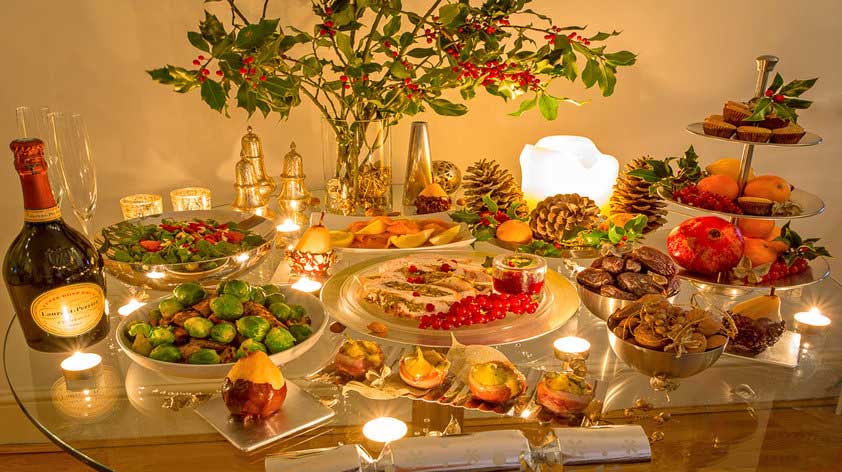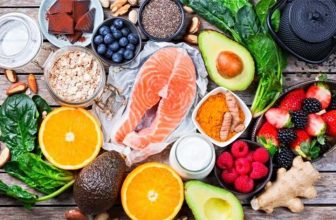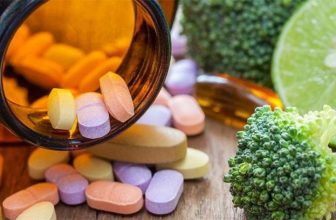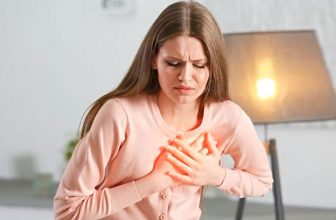
Christmas, for all its blessings, often actually ends up the most unhealthy time of year for many people. First, the chocolate liqueurs and shortbread, followed by endless glasses of prosecco and gorging yourself on gorgonzola then come the mince pies with cream. Then finally a huge Christmas dinner with accompanying Christmas pudding before falling asleep in front of reruns of the Queen’s speech. Traditionally it should never be a healthy time of year. Right? Wrong! Curious? Read on for these Top 5 Christmas Foods & Their Health Benefits!
1. Chestnuts
Chestnuts are an excellent source of magnesium. not only that, they are a great source of vitamin C as well as vitamins B1, B2, and B6 and folic acid. Chestnuts are low in fat and high in fibre 100g of chestnuts come in at just 149 calories and, unlike other nuts, they are higher in carbohydrates containing 28g per 100g. They are also lower in protein and fat than other nuts and nearly all the fat in chestnuts is a ‘good’ or unsaturated fat. They are also a good source of fibre (at 5.1g per 100g) and are very versatile. Try light stir frying them with brussels sprouts or chop them up and serve them with fruit and yogurt for a healthy Christmas dessert.
2. Parsnips
Forget about the Christmas sausagemeat which is high in calories and instead add roast or mashed parsnips to your Christmas dinner and you will save yourself hundreds of calories. Parsnips contain a great variety of vitamins and minerals. They are also high in potassium, containing 375 mg per 100g. They’re also rich in antioxidants and are noted for their anti-inflammatory properties. Parsnips are also rich in fibre which has been proved to reduce the risk of Type 2 diabetes.
3. Turkey
Traditional Christmas foods include the staple, turkey, which is healthier than red meat. Much praised by dieters, turkey contains high-quality protein, B vitamins, selenium, zinc, and phosphorus. It also encourages muscle growth and maintenance, as it contains a plentiful supply of nutrients. If you are on a low-calorie diet then turkey is perfect as you get around 150 calories in a 100g/4oz portion of cooked turkey breast. That’s a lower calorie count than almost every other meat. Christmas turkey could be a dieter’s best friend as long as you avoid adding oil. Try adding stock to the bottom of the cooking tray and wrapping the turkey in tin foil to seal in the juices and flavour without adding extra fat. (There are also very many ‘vegetarian turkey’ options popping up in supermarkets so you can substitute the animal element of it entirely!)
4. Smoked Salmon
Smoked salmon is a good source of protein, B vitamins, vitamin D, magnesium and selenium. Smoked salmon also contains plenty of DHA and EPA omega-3 fatty acids linked to a lower risk of heart disease. Omega-3 fatty acids are also excellent for brain function and improved mental health, which will help keep the Christmas season blues away. For added healthy mind function, try adding it to scrambled eggs with a cold glass of alcohol-free prosseco.
5. Alcohol-free drinks
You just have to get drunk at Christmas, don’t you! Well do you…? There didn’t used to be an alternative, with all that alcohol flowing on tap. Alcohol could make that anxiety you felt about making small talk with your Great Aunt Maud even worse and then there was the hangover the next day.
That was how Christmas used to be, but now with so many major supermarket chains stocking such delights as alcohol-free prosecco, you can enjoy a drink without suffering any of pitfalls of that old dinosaur, alcohol. My personal favourite is Nosecco, or non-alcoholic prosecco. Coming in both white and rosé, it is one of the best and most popular bottles sold in the UK.









